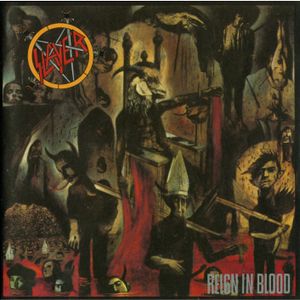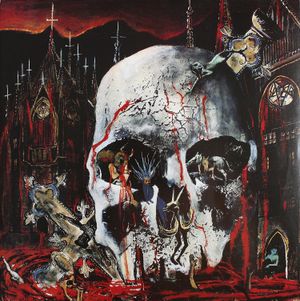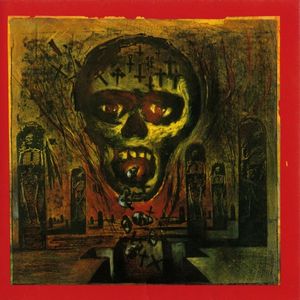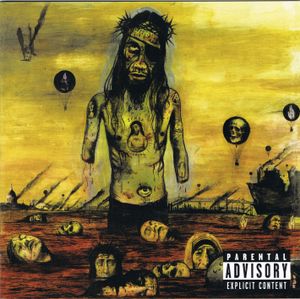
Slayer v.s. Megadeth
Two thrash-metal titans. One winner. It’s time to settle one of metal’s greatest rivalries — Slayer vs. Megadeth — and your vote decides who claims the throne.


Slayer, hailing from Huntington Park, California, emerged in 1981 as a force of pure sonic aggression. Founded by guitarists Kerry King and Jeff Hanneman, drummer Dave Lombardo, and bassist/vocalist Tom Araya, they quickly established themselves as a dominant force in the thrash metal scene. Their blistering speed and relentless intensity earned them a place amongst the "Big Four" of thrash alongside Metallica, Megadeth, and Anthrax.
Slayer's musical style is defined by its raw power and uncompromising aggression. Their lyrics, often focusing on themes of serial killers, torture, genocide, and other dark subjects, have generated controversy and even bans throughout their career. But the band's influence on metal is undeniable. Their third album, Reign in Blood (1986), is considered one of the heaviest and most influential thrash metal albums ever released.
Their signature sound was forged through the songwriting partnership of King and Hanneman, who also contributed to the band's lyrics. While the band has undergone numerous lineup changes, the current iteration features King, Araya, drummer Paul Bostaph, and guitarist Gary Holt, who joined permanently after Hanneman's passing in 2013.
Throughout their career, Slayer have released a substantial body of work including twelve studio albums, three live albums, a box set, six music videos, two extended plays, and a cover album. Four of their studio albums have achieved gold certification in the United States, and they sold an impressive 5 million copies between 1991 and 2013, according to Nielsen SoundScan.
Slayer's legacy is cemented as a cornerstone of thrash metal, a band that pushed boundaries and challenged conventions with their uncompromising sound and controversial lyrical content. Their influence can be felt in countless bands that followed in their wake, forever solidifying their status as true pioneers of the genre.
Discover more bands in the Heavy Metal genre and explore the diverse sounds that define this musical style.
Browse All Heavy Metal BandsDiscover the rich musical heritage of United States and explore bands that represent the country's unique sound and culture.
Browse All United States Bands









